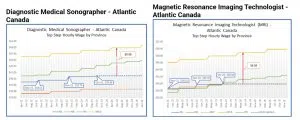Unions for health-care workers in Nova Scotia say the province is preventing them from taking job action.
Three unions, representing 9000 health-care workers, not including doctors and nurses, say they’ve been trying to negotiate a new collective agreement for months. But they can’t call a strike because the government won’t give them an essential services plan, according to Hugh Gillis, vice president of the Nova Scotia Government and General Employees Union (NSGEU). That plan would outline the staff who can strike and the staff who are necessary to maintain essential services.
“These needless delays and shenanigans are making health-care shortages worse,” said Gillis.
The three unions representing the employees — NSGEU, CUPE and UNIFOR — applied for a conciliator on Wednesday, hoping an intermediary will help the unions and the government determine the essential services plan.
Essential services legislation
Gillis and the unions believe Nova Scotia Health hasn’t upheld their side of the bargain, to create the essential services plan.
The plan comes from the Health Authorities Act, which was passed under former Liberal Premier Stephen McNeil.
The unions say it is “a blatant attempt to diminish the effectiveness of a strike, as the legislation effectively allows employers to drag their feet on bargaining and delay potential job action,” they wrote in a news release.
The previous collective agreement expired in October 2023. Negotiations began on a new contract that month, but after meeting more than 20 times, they don’t have an agreement or an essential services plan, said Gillis.
Some wages $9 an hour lower in Nova Scotia
This exacerbates the health-care staffing shortage, he said, because wages for many of these people are lower than other Atlantic provinces.
The unions represent workers in jobs like diagnostic imaging (x-rays, MRIs, ultrasounds, etc.) and jobs in 174 jobs, including in:
- pharmacy
- laboratory
- physical therapy
- mental health and addictions
- cancer therapy
- prosthetics
- anesthesia
- hearing and speech
- paramedics
- orthopedics
- community health
“You cannot run a hospital without these folks. They are key to the future of health care and keeping it running up every day,” said Gillis.
According to an example of wage data provided by NSGEU, Nova Scotia’s wages for ultrasound technicians was $39.96 an hour, $9 an hour lower than Newfoundland and third overall in Atlantic Canada.

Two graphs from NSGEU show wage differences in the Atlantic provinces for ultrasound technicians (left) and MRI technologists. (NSGEU)
P.E.I. had the second highest wage at about $44 an hour, and New Brunswick had the lowest at about $36 an hour.
For MRI technicians, Nova Scotia is tied with New Brunswick for the lowest wage, according to NSGEU.
Nova Scotia sits at $39.96 an hour, again $9 an hour lower than Newfoundland. P.E.I. sits at about $41 an hour.
These workers want to be treated fairly and respected for their work, he said.
“They have to be compensated appropriately, compared to their counterparts in Atlantic Canada. There’s no way that we can compete if we can’t pay them the wages that they’re making in the Atlantic region.”


















Comments